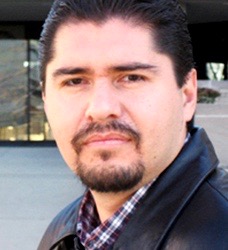 Alejandro Dominguez
In February 1990, Dominguez waived a jury in favor of a bench trial before Lake County Circuit Court Judge Harry D. Hartel.
The only evidence connecting Dominguez to the crime was the victim’s identification testimony, although she initially said her attacker had a pierced ear and a tattoo and spoke English, while Dominguez had no pierced ear, no tattoo and spoke only Spanish.
During cross-examination, the victim revealed that the lead detective brought her to an office in the apartment building where she lived and asked to look through a window. The detective said, “Watch the one sitting on the chair. Tell me if that is the one . . .” Dominguez was the one sitting in the chair.
Although DNA testing could have been done before trial, neither the defense nor the prosecution requested it. A forensic serologist testified for the prosecution that semen recovered from the victim could have come from Dominguez, but the serologist was not asked and did not volunteer what portion of the male population was included among the possible sources. Had that question been asked, a truthful answer would have been more than two-thirds of all men in the world.
On February 27, 1990, Hartel found Dominguez guilty of rape and burglary. He sentenced Dominguez to nine years in prison. With day-for-day good time and credit for time served in jail before trial, Dominguez was released from prison in December 1994.
Six years after his release, by which time he had married and fathered a child, the U.S. Immigration and Naturalization Service threatened to deport Dominguez for failing to register as a sex offender. At that point, he retained criminal defense lawyers Jed Stone and John P. Curnyn to seek DNA testing of the biological evidence in the case.
In 2001, Lake County Circuit Court Judge Raymond McKoski granted a motion for DNA testing — at Dominguez's expense. And in March 2002, the results of the testing by the Serological Research Institute in Richmond, California, excluded Dominguez.
Dominguez was officially cleared of all charges on April 26, 2002, when Judge McKoski granted a motion in which the Lake County State’s Attorneys Office joined Stone and Curnyn in asking that the conviction be set aside.
Dominguez later filed a federal civil rights lawsuit against the Waukegan Police Department and the lead detective, Paul Hendley, who conducted the show up identification. The lawsuit alleged that police withheld from prosecutors the use of the coercive show up procedure at the apartment building. The lawsuit also said a report from a naval officer at the navy hospital where the victim was treated was not disclosed as well. That report revealed that the victim's initial description of her attacker differed significantly from her later description and did not resemble Dominguez.
On October 17, 2006, a federal jury awarded Dominguez $9 million. Dominguez also was granted a gubernatorial pardon, which qualified him for an award of $60,150 under the Illinois compensation statute.
— Rob Warden
|